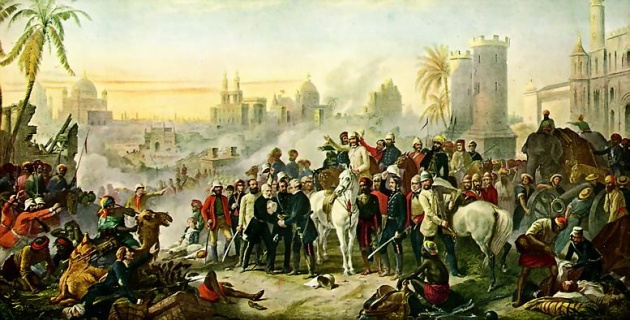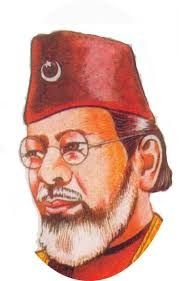Recap :
In my previous blog FOUNDATION OF MUSLIM LEAGUE (part 1). I told U about the Subcontinent's Islamic Backgroung and Mughal Emprors, Cultural Polarities of the Hindu-Muslim Relationship. Now lets move ahead......
Aftermath of the Uprising of 1857
The British regarded the Muslims as mainly responsible for the mutiny, and singled them out for repression. Even as they succeeded in crushing the revolt, British troops were "sewing the Mohammedans in pigskins, smearing them with pork fat, and burning their bodies."The British turned on the Muslims as their real enemies, so that the failure of the revolt was much disastrous to them than to the Hindus. They lost almost all their remaining traditional prestige of superiority over the Hindus; they forfeited, for the time, the confidence of their foreign rulers; and it is from this period that on must date the loss of their numerical majority in the higher subordinate ranks of civil and military services. In the words of W.W. Hunter: "The truth is that when the country passed under our rule, the Musalmans were the superior race and superior not only in stoutness of heart and strength of arm but in power of political organization and in the science of practical Government. To this day they exhibit at Intervals their old intense feeling of nationality and capability of warlike enterprise, but in all other aspects they are the race ruined under British rule The truth is, that our system of instruction, which has awakened the Hindus from the sleep of centuries, and quickened their inert masses with some of the noble impulses of a nation is opposed to the traditions, unsuited to the requirements, and hateful religion of the Musalmans.... with the Musalmans the case was altogether different.
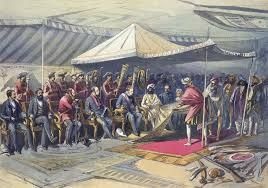
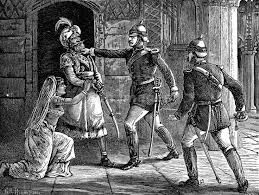
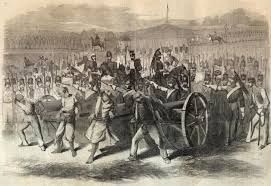
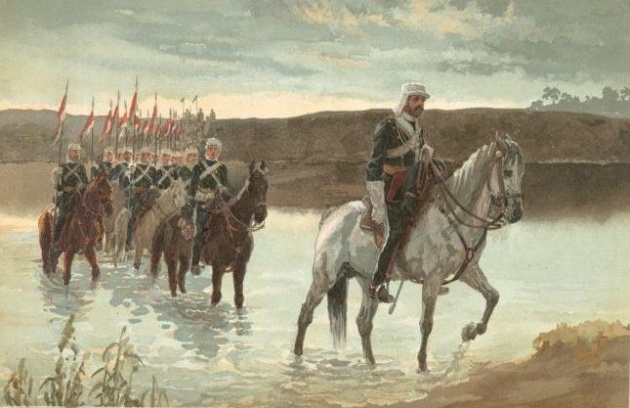
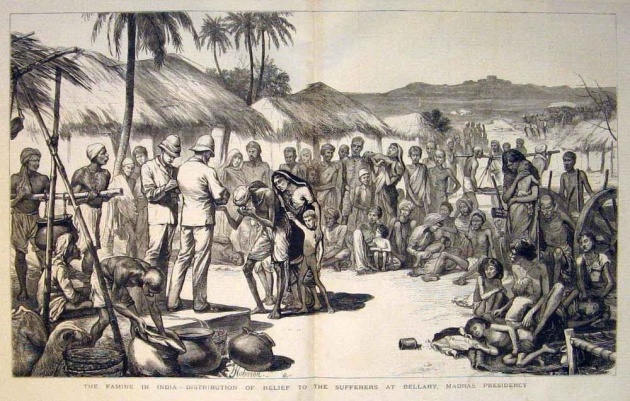
. Before the country passed to us, they were not only the political but intellectual power in India... Is it any wonder that the Musalmans have held aloof from a system which made no concession to their prejudices, made no provision for what they esteemed their necessities; which was in its nature unavoidably antagonistic to their interests, and at variance with all their social traditions? .. While we have created a system of Public Instruction unsuited to their wants, we have also denuded their own system of the funds, by which it was formerly supported.... All sorts of employment, great and small, are being gradually snatched away from the Mohammedans and bestowed on men of other races, particularly the Hindus. The Government is bound to look upon all classes of its subjects with an equal eye, yet the time has now come when it publicly singles out the Mohammedans in its Gazettes for exclusion from official posts... There is now scarcely a Government office in which a Mohammedan can hope for any post above the rank of porter, messenger, filler of inkpots, and mender of pens.... A hundred and seventy ears ago it was almost impossible for a well-born Musalmayn in Bengal to become poor, at present it is almost impossible for him to continue rich."
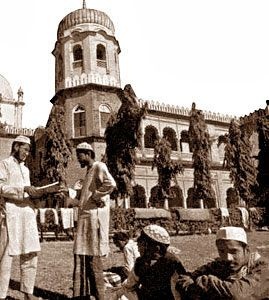
As soon as order was restored after the Revolt of 1857, Sir Syed Ahmed Khan wrote a treatise in Urdu on the causes of the Indian Revolt. The book was written when the greater part of the country was under martial law and the Anglo-Indian Press was advocating ,a very firm line'. Sir Syed's book was, however, a bold indictment of the Government of India and its administration. Sir Syed wrote, "In the period preceding the Indian Revolt. Government could never know the inadvisability of the laws and regulations which it passed. It could never hear, as it ought to have heard, the voice of the people on the subject. The people had no means of protesting against what they might to be a foolish measure, or of giving public expression to their own wishes." He also complained about the lack of social intercourse between the British and the Indian sections of the public. "There was no real communication between the governors and the governed, no living together or near one another, as has always been the custom of the Mohammedans in countries which they subjected to their rule. According to Sir Syed the basic cause of the revolt, was the non-admission of any Indian to the Legislative Councils. He said: "Most men agree that it is highly conducive to the welfare and prosperity of Government-indeed, it is essential to its stability-that the people should have a voice in its Councils." At the same time, he candidly concluded: "I do not wish to enter into the question as to how the ignorant and uneducated people of Hindustan could be allowed to share in the deliberations of the Legislative Council, or as to how they should be selected to form an Assembly like the British Parliament. These are knotty points.
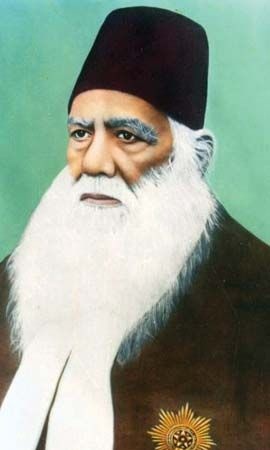
Sir Syed Ahmad Khan
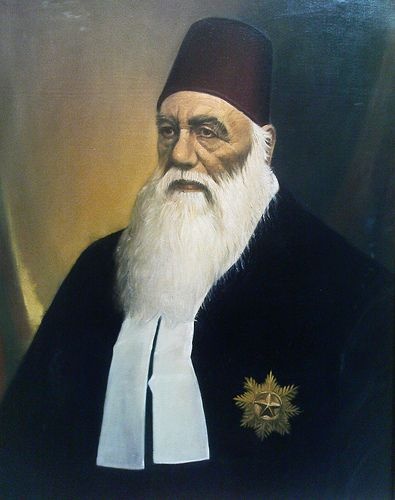
Sir Syed Ahmad Khan
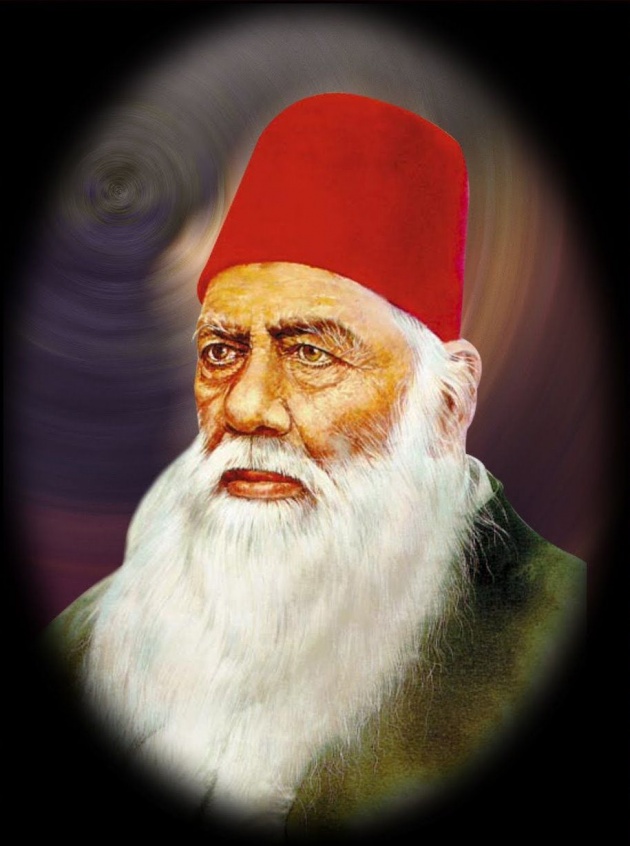
Sir Syed Ahmad Khan
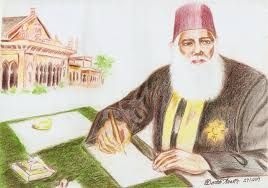
Sir syed Ahmad Khan
Sir Syed Ahmad Khan Documentry in URDU LANGUAGE
1857 revolt in india
Sir Syed did not publish the book in the country, but despatched 498 out of the 500 printed copies of it to England for the perusal of Members of Parliament and other English men interested in the affairs of India. The book aroused considerable discussion and diversity of opinion in official circles in England and India. In India, in the Viceroy's Council, Cecil Beadon, the Foreign Secretary, characterized it as highly seditious and recommended prosecution of the author. In England at the India Office, however, the book becamehet the starting point for many reforms--e.g., the appointment of Indians to the Legislative Council, which began almost with in a year of the publication of the book. In a way, the book also led to the birth of the Indian Congress and eventually, the Muslim League.
In 1892, Aftab Ahmed Khan, later a member of the Council of Secretary of State for India, visiting London happened to meet Allan Octavian Hume, the founder of the Indian National Congress. Hume said to Aftab: "It was after reading Syed Ahmad's book on the causes of the Indian Revolt that I first felt the need for having a forum of public opinion in India, and eventually the Indian National Congress came into existence. But the amazing thing is that when it was started, Syed was the first to oppose it." Likewise, Maulana Mohammad Ali has traced the establishment of the Muslim League to Sir Syed's book.
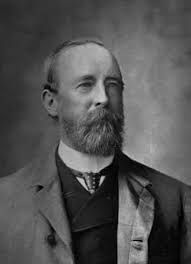
Allan Octavian Hume
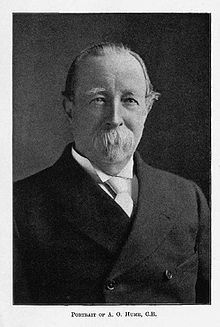
Allan Octavian Hume
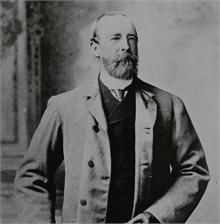
Allan Octavian Hume
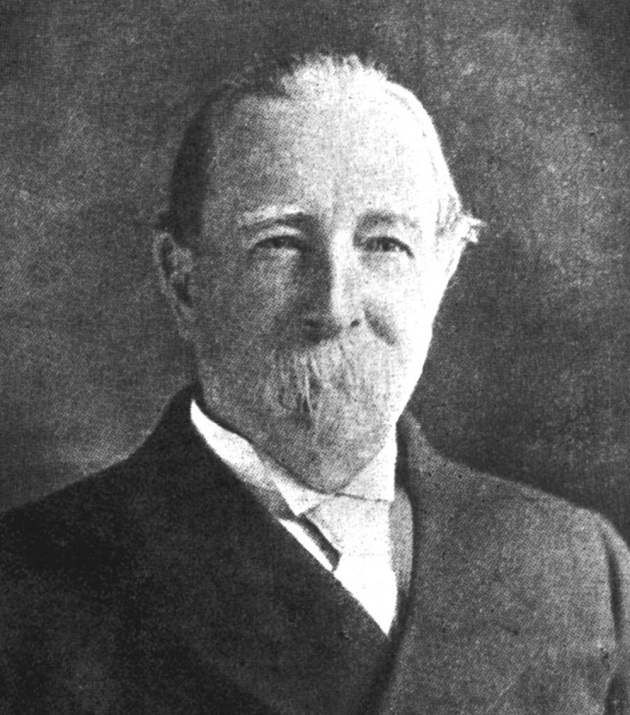
Allan Octavian Hume
Maulana Muhammad Ali Johar
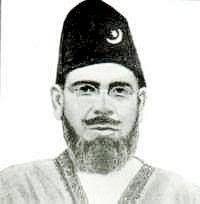
Maulana Muhammad Ali Johar
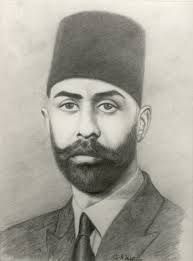
Maulana Muhammad Ali Johar
MAULANA MUHAMMAD ALI JOHAR little intro in URDU Language
Early Muslim Organization (part 1)
Early Muslim Organization The first political organization to be formed by the Muslims of the Indo-Pakistan Subcontinent appears to have been the Mohammedan Association, whose headquarters were at 9/1 Taltollah, Calcutta. The President of the Association was Fazlur Rahman, and its Secretary was Mohammed Mazhar. The Birtish India Association (Bengal) expressed its happiness at the foundation of the Mohammedan Association when it held a meeting on January 31, 1856.
In April 1863, Nawab Abdul Latif founded the Mohammedan Literary Society with the object of breaking down prejudices and exclusiveness and creating interest in politics and modern thought.The Nawab belonged to an old family of Qazis from Faridpur District, and in 1862 was nominated to the Bengal Legislative Council, being the first Muslim admitted to its member ship. F.B. Bradley-Birt writes that the Mohammedan Literary Society grew out of informal gatherings, held for many years at the private residence of the founder The Society, which used to meet once a month at 16, Taltolla Lane, Calcutta, included distinguished scholars and noblemen amongst its members. Lectures were delivered in Urdu, Persian, Arabic and English on literature and society. Some especially interesting papers were read before the Society, such as Sir Syed's lecture (delivered in Persian) on the spread of education and Moulvi Karamat Ali Janpuri's lecture on the current controversy relating to Indian Association being a Dar-ul-Harab.The journal of the National published an account of the Society in October, 1877, and wrote that more than 500 Muslim gentlemen from all parts of India became its members. Once a year the Society held a conversazione at the Town Hall of Calcutta. The Society also submitted addresses to Viceroys and Lieutenant Governors seeking the redress of Muslim grievances, Ashley Eden, the Lieutenant Governor of Bengal, made the following observations about the Society: "I have watched its career from its commencement in 1863 and good work done in regard to education and in assisting to bring the Government system of education into accord with the special educational wants of the Mohammedan community."
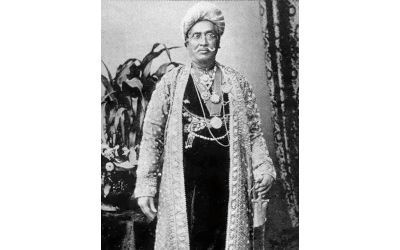
NAWAB ABDULLATIF
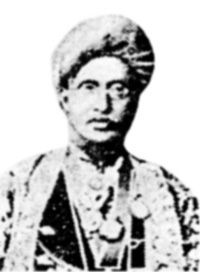
NAWAB ABDULLATIF
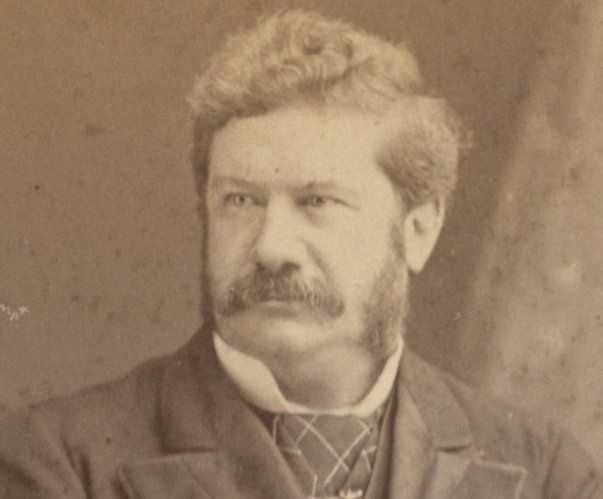
Ashley Eden
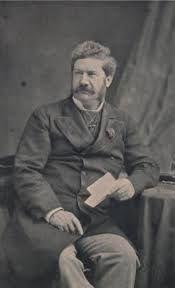
Ashley Eden
As the Muslims had no specifically political organization at that time, Government consulted the views of the Mohammedan Literary Society on matters affecting the interests of Muslims.
In 1866 Sir Syed Ahmed Khan organized a British India Association at Aligarh, which has been described as 'the forerunner of the Congress. In an address to the Association, on May 10, 1866, Sir Syed said: "It has been a matter of sincere regret to all thinking Indians that since the assumption of the reins of the Government of India by Her Most Gracious Majesty Queen Victoria in person, the attention of her Parliament has not been more bestowed upon measures affecting the future welfare of the inhabitants of this portion of her dominions The actions and laws of every government even the wisest that ever existed although done or indicated from the most upright and patriotic motives , have at times proved inconsistent with the requirements of the people, or opposed to real justice. The Indians have,at present, little or no voice in the management of the affairs of their country, and should any measure of Government prove obnoxious to them, they brood over it, appearing outwardly satisfied and happy while discontent is rankling in their minds." The object of this organization was to bring Indian grievances and points of view to the notice of the British people in general and the British Parliament in particular. Raja Jaikishandas was elected its President and Sir Syed its Secretary. The Association was the first joint Hindu-Muslim Organization, but it lasted no more than a year, and its only significant work was the elaboration of' a scheme to establish a vernacular university. Even this project became a subject of dispute through the anti-Urdu campaign started by some prominent Hindus of Banaras in 1867, which led to the demand that in the vernacular university Hindi should be the medium of instruction for Hindus.
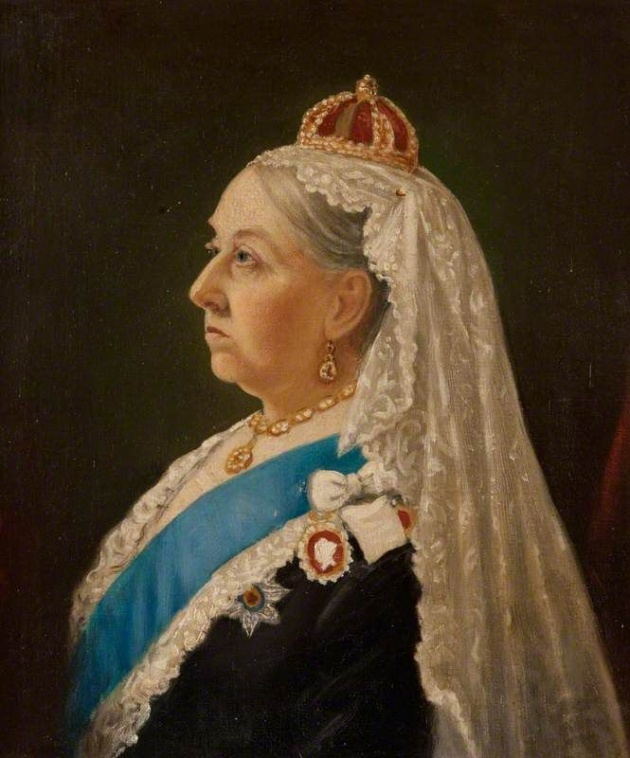
Queen Victoria
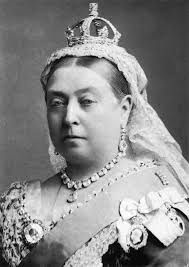
Queen Victoria
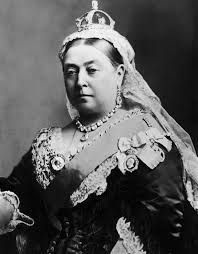
Queen Victoria
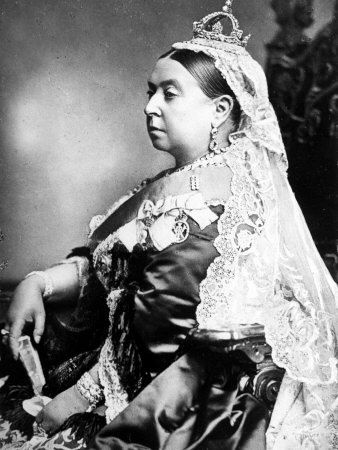
Queen Victoria
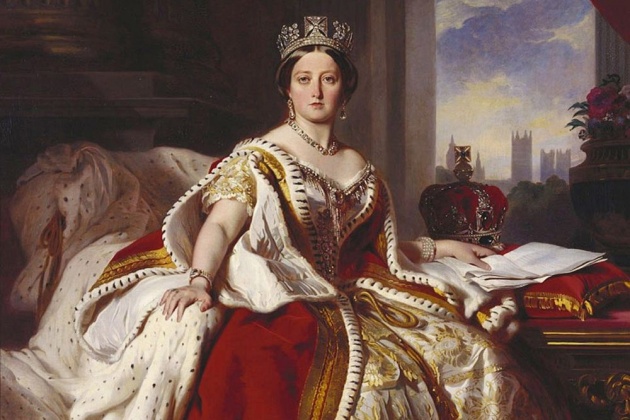
Queen Victoria
QUEEN VICTORIA
Perceiving the complete lack of national training among the Muslim inhabitants of India, and the immense advantage and preponderance the Hindu organizations gave to their community, Syed Ameer Ali in 1877 founded the Central National Mohammedan Association. Soon branches were formed, spreading from Madras to the Punjab, from Chittagong to Karachi. Non-Muslims were eligible as members, but were not entitled to vote on purely Muslim matters.
The Association defined its objects as follows: The Association has been formed with the object of promoting by all legitimate and constitutional means the well-being of the Musalmans of India. It is founded essentially upon the principle of strict and loyal adherence to the British Crown. Deriving its inspiration from the noble traditions of the past, it proposes to work in harmony with Western culture and the progressive tendencies of the age. It aims at the political regeneration of the Indian Mohammedans by moral revival and by constant endeavours to obtain from Government a recognition of their just and reasonable claims. The Association does not, however, overlook the fact that the welfare of the Mohammedans is intimately connected with the well-being of the other races of India. It does not, therefore, exclude from its scope the advocacy and furtherance of the public interests of the people of this country at large.
So we were Talking about the Early Muslim Organization. Mates its not finished yet stay tuned for my next blog on this. Which will be coming soon.....
To be Continued.......

